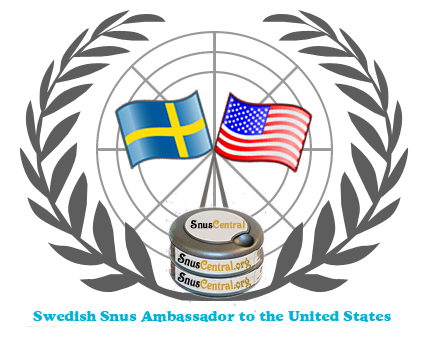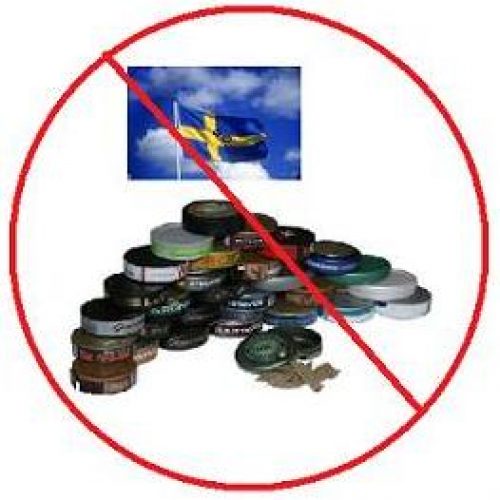FDA Targets Internet Tobacco Sales and Advertising
Non-Face-to-Face Sale of Tobacco Products and Advertising, Promotion, and Marketing of Tobacco Products by FDA
On Monday, September 12th, FDA informed the tobacco industry, anti-tobacco groups, and interested parties that they are preparing to consider rules which will further regulate non-face-to-face sale and distribution of tobacco products (e.g. E-commerce). Equal focus will be paid to the advertising, promotion and marketing of tobacco products sold via non-face-to-face exchange.
FDA admits in this advanced notice of proposed rulemaking (ANPRM) that the enactment of the PACT Act effectively satisfied the requirements of the Tobacco Act by requiring positive age verification and adult signatures for accepting tobacco product deliveries. Their alleged concern is whether these are enough to prevent minors from illegally obtaining tobacco products, particularly by category.
The anti-all-tobacco extremists are in something of a horrified uproar that while cigarette smoking rates are falling in the US, almost 50% of those quitting are switching to snus and other smokeless reduced harm tobacco products. It doesn’t matter to anti-tobacco profiteer Matt Myers in particular that reduced harm cigarette alternatives are at least 90% to as much as 99% less harmful to smokers than cigarettes.
It doesn’t matter to the anti-all-tobacco extremists that the other 50% who stop smoking using patches, gum, or pills overwhelmingly return to cigarettes within a year….unless they finally discover snus or other smokeless alternatives.
Their issue is not really public health. It is all about banning legal product choices to adult consumers who enjoy tobacco or are nicotine dependent because the of the extremist’s personal hatred of tobacco in all forms.
FDA is particularly focusing on whether the PACT Act restrictions are enough to prevent minors from obtaining tobacco products, again particularly by category.
Logically the PACT Act requirements enacted after The Tobacco Act became law should be considered sufficient to deter illegal tobacco purchases. In reality, who knows what FDA will find acceptable. As bureaucrats, they may also feel an obligation to add regulations just because they can and to pander to their fellow anti tobacco extremists.
Regarding tobacco product marketing and advertising, FDA is taking on the Internet, social media, smartphones and electronic communications. Again for the (wait for it…) “sake of the children”, FDA wants to determine how tobacco products are currently eAdvertised, whether it is enticing to minors, and whether yet more senseless over-regulation needs to occur.
The danger here is that if FDA does impose even more restrictions, it pushes Internet censorship further down the slippery slope it’s already on. What’s next; a ban on virtual advertising for soft drinks, candy, potato chips, and other politically incorrect foods to protect “the children” from obesity?
Even the American Cancer Society opposes the latest anti-cigarette legislation proposed by the City of Dallas. It would allow health insurance companies to charge private-sector workers who test positive for nicotine higher rates for their company health insurance. Note that while this is being pushed as an anti-cigarette/pro-public health measure, anyone whose urine tests positive for nicotine will be charged the higher rate.
Using the words slippery slope as well, the American Cancer Society wonders what will come next: higher group health insurance rates for those deemed too fat or those who don’t exercise as much as the insurance companies feel they should?
Maybe FDA will just mandate advertisers include ratings in their ads similar to those required on video games and movies. If a child surfs into an ad which is Rated R, of course they will immediately look away or even smash their monitor. The success of this strategy is why kids never play violent/sexually explicit video games or watch cable TV.
That’s good because parents can’t be expected to even attempt to control what their children watch, what video games they play, or whether they illegally buy and use tobacco products. Parents are helpless. Haven’t you ever read the sequel to Hillary Clinton’s book “It takes a Village”? The title is “It takes a Bureaucracy”.
Get set for another round of attacks on adult personal freedoms, more punitive taxation, more nanny state, big government micro-management of our lives “for the sake of the children“. Am I the only one tiring of this pathetic old generic justification for stopping everything these radical anti-tobacco extremists don’t like?
The Non-Face-to-Face Sale of Tobacco Products and Advertising, Promotion, and Marketing of Tobacco Products ANPRM from FDA does invite public as well as industry comment. You can be sure the Anti All Tobacco Extremists will be flooding FDA with their propoganda. I encourage all legal adult tobacco consumers to similarly make their voices heard at FDA.
The ANPRM details how we can add our voices to the pile of comments. Let’s take FDA up on their kind offer and respond.
Reporting from the front lines of the War Against Tobacco,
LARRY WATERS
Swedish Snus Ambassador to the United States
Reporting for SnusCENTRAL.org
About author
You might also like
New Snus from Swedish Match 2013
UPDATED: 1 Feb 2013: Prior to 2007 and Camel SNUS Frost, there were virtually no mint Swedish snuses available (menthol aside). Swedish Match was the first to challenge the US
Cigarettes, Snus; ALL Tobacco (except Cigars): Internet Purchases to be BANNED in the USA????
This article appeared on the Convenience Store/Petroleum website about a week ago. At first I was stunned: then it made obscenely perfect sense. After I regained consciousness, I went through
Thunder Snus Frosted Extra Strong Portion Snus by V2 Tobacco
Can V2 Tobacco do no wrong these days? The buzz about the new flavors they are testing has been overall very positive. The elusive V2 Brown Snus which is being



